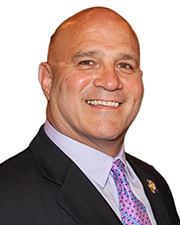News:
Construction Design & Engineering
Posted: February 14, 2013
New medicare tax on investment income urges closer look
Real estate professionals may want to pay closer attention to the way they do business. That's because the number of hours they spend in the real estate business—and the amount of time actually spent managing rental properties—will have a big impact on whether or not they pay the new 3.8% Medicare tax on investment income.
A real estate professional with $1 million of rental income, could save more than $30,000 in taxes annually by qualifying as a "real estate professional." For those with larger real estate holdings, the annual tax savings could be exponentially significant.
Who saves? The 3.8% tax, enacted as part of health care reform, is designed to raise an estimated $210 billion to fund medicare by taxing investment income. Previously, investment income such as capital gains, dividends, taxable interest and rental activities was exempt. The new tax applies to those taxpayers meeting certain income thresholds, $250,000 for married couples filing jointly and $200,000 for single taxpayers.
The accompanying chart illustrates the significant tax savings for real estate professionals. A married taxpayer with wages of $120,000, net investment income (from sources such as interest and dividends) of $200,000, and $1 million of rental income would save $33,060 if he/she qualifies as a real estate professional compared to someone who does not meet that qualification.
Who qualifies? The real estate professional designation has been around since the 1980s, but it has been primarily used so that professionals could use losses from their real estate operations to offset other income. Those with profitable operations may have never considered making the election to become a real estate professional.
The new medicare tax makes this election much more attractive, since it turns otherwise passive income into non-passive income, which is exempt from the 3.8% tax.
Qualifying for the real estate professional designation is tough. The tests used to determine who is entitled to the designation are very specific, making it impossible to qualify if real estate is not your primary business (such as someone who has a full-time job, but is also a landlord on the side). Here are some highlights:
More than half of the taxpayer's personal services must be in "real property trades or businesses." Moreover, the taxpayer must perform more than 750 hours of services each year in real property trades or business in which he or she materially participates.
Once the taxpayer qualifies as a real estate professional, they must also meet one of seven material participation tests each year. The most common test is logging more than 500 hours in rental activity during the tax year. Hours spent on management, leasing, and brokerage are not included. Nor are activities involving hotels.
Proving these levels of participation requires meticulous recordkeeping. The records must reflect actual hours worked, not just planned hours in an appointment book. Tax courts have denied the real estate professional designation when the evidence of hours was insufficient.
Once a real estate professional qualifies and makes the election, the designation is permanent and they must meet the qualifying standards every year. In years when the standard is not met, both income and losses are deemed to be passive. That not only makes the income subject to the new 3.8% tax once MAGI exceeds the threshold, but it means that any losses can only be used to offset passive income.
The good news is taxpayers do not have to make the real estate professional designation until they file their tax return. That means they have plenty of time to assess the impact of the new 3.8% tax on investment income and determine if the designation makes sense.
Thinking about taking a closer look at the way you do business now? Consult with a tax advisor to determine how the real estate professional designation may apply to you.
Laura Gregoriadis, CPA, is a manager in the real estate practice group at DiCicco, Gulman & Co., Woburn, Mass.
MORE FROM Construction Design & Engineering
Timberline Construction Corp. completes renovation for Notre Dame Long Term Care facility
Worcester, MA Timberline Construction Corp. (Timberline) has completed an 18-month, 55,000 s/f renovation of the Notre Dame Long Term Care facility. The project transformed the nursing home into a modern, community-driven and patient-focused environment

Columns and Thought Leadership

Ask the Electrician: How do I prepare my commercial building for a disaster?
New England’s notorious weather – from fierce winter storms to summer squalls and fall hurricanes – can leave businesses in the dark. While power outages are often blamed on storms, they can also be caused by unforeseen events like accidents or construction mishaps.

Insulation experts are the unsung heroes of our clean energy progress - by Jeffrey Saliba
While not as well-known as Nobel-prize-winning economists, politicians, or international climate activists, your local union insulators are essential to reducing harmful carbon emissions across Massachusetts. We’re proud to advocate for cleaner energy in the halls of power, as well as do the skilled, physical work in schools, office buildings,

Navigating tariffs and material uncertainty in today’s construction market - by Karl Ginand and Tiffany Gallo
As headlines around tariffs seem to dominate the news daily, many considering construction projects have anticipated major cost escalations and widespread supply issues. While tariffs haven’t driven pricing spikes to the extent once feared, the lasting impact has been a new layer of uncertainty, affecting more than just budgets.

It’s time to lead: Confronting mental health in construction - by David Watts
As we close Mental Health Awareness Month, we must be clear: May isn’t just about ribbons, hashtags, or lunchtime mindfulness apps. It’s about responsibility to confront hard truths that linger in silence, and to challenge ourselves, as leaders in our industry, to do more.

.png)








.png)